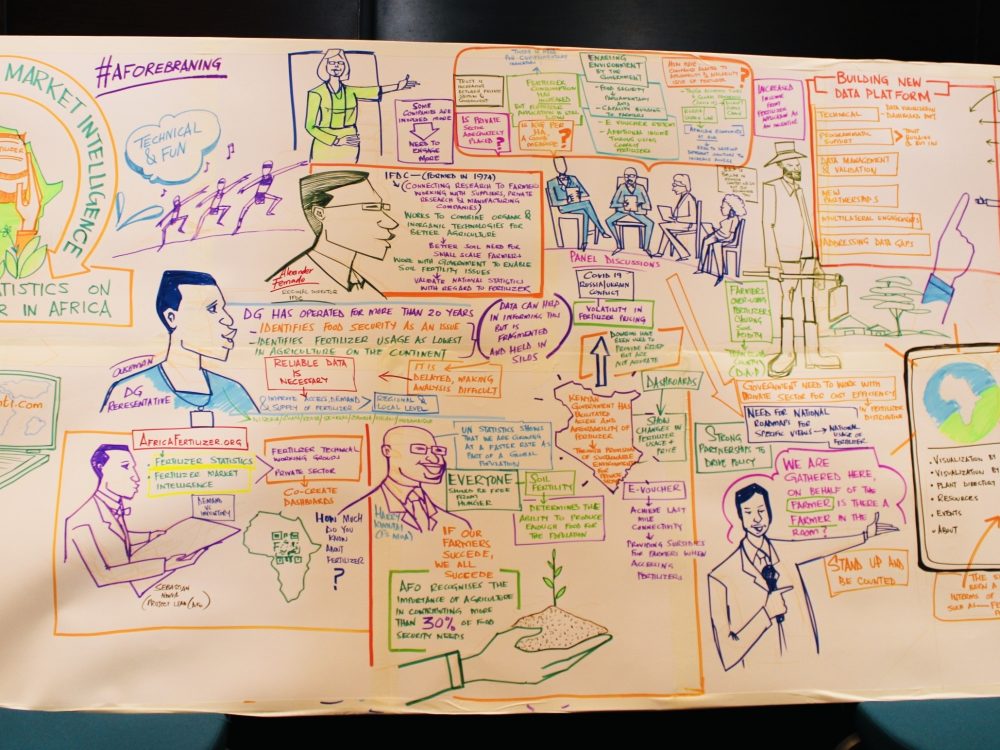Takeaways and Next Steps for Results
We are grateful to those who joined us at our “What’s next for results data” event earlier this month at the OpenGov Hub. This conversation comes at an opportune time, as our global community invests in achieving the Sustainable Development Goals (SDGs). Critical to SDG success will be ensuring that the “data revolution” helps to empower those on the front lines of development to effectively collect, share, and use data on outputs and outcomes for more effective and impactful decisions.
As Minister Ngozi Okonjo-Iweala highlighted, the biggest challenge Development Gateway’s Results Data Initiative (RDI) research identified is the broken feedback loop between the people who collect results data and those who try to use this information. This issue impacts the entire results data ecosystem, from collection and quality, to sharing and use.
Moving forward, as an international community we must do more to foster a “results culture” in which people feel empowered to use data the data they collect.
We hope the following key takeaways prove helpful in shaping how we all approach the results data ecosystem:
-
We should recognize and evaluate the purpose and cost of indicators we collect with three key questions in mind: data for whom, data for what, at what cost.
-
There is a demonstrated demand for better tools and trainings to equip local-level data users with the skills to analyze and apply results data in their work.
-
Incentives – awards, recognition, advancement, and others – are an under-utilized method of increasing data use. Senior officials can encourage ownership over data quality and uptake by providing feedback on the value and utility of data to those who collect this information.
- Development partners can make concrete improvements to internal results reporting templates to make this data more accessible and useful.
Participation during the opening presentation and thematic breakout sessions (health service delivery, agriculture indicators collection, improving the accessibility of results data, and the political economy of data use) was extremely valuable as we continue to focus our attention on the needs of data users at all levels.
Over the coming months, we hope to continue learning from others and sharing our findings. Please continue to explore and provide feedback on the RDI Data Visualization, and contact our team with any questions, concerns, or related initiatives. In addition, we will be publishing a synthesis report of our findings on the RDI webpage in the coming weeks.
Thank you again for your support. We look forward to continuing our conversations in future.
Share This Post
Related from our library

Building a Sustainable Cashew Sector in West Africa Through Data and Collaboration
Cashew-IN project came to an end in August 2024 after four years of working with government agencies, producers, traders, processors, and development partners in the five implementing countries to co-create an online tool aimed to inform, support, promote, and strengthen Africa’s cashew industry. This blog outlines some of the key project highlights, including some of the challenges we faced, lessons learned, success stories, and identified opportunities for a more competitive cashew sector in West Africa.

Digital Transformation for Public Value: Development Gateway’s Insights from Agriculture & Open Contracting
In today’s fast-evolving world, governments and public organizations are under more pressure than ever before to deliver efficient, transparent services that align with public expectations. In this blog, we delve into the key concepts behind digital transformation and how it can enhance public value by promoting transparency, informing policy, and supporting evidence-based decision-making.

From Data Gaps to Impact: Key Insights from the VIFAA Program
Over the last six years, DG, together with its partners AfricaFertilizer (AFO) and Wallace & Associates, collaborated to implement the Visualizing Insights on Fertilizer for African Agriculture (VIFAA) Program. In the program’s final year (2024), the team undertook a “program learning process” to reflect on outcomes, challenges, and successes through internal interviews. This blog captures five key learnings, which we hope will guide similar programs aiming to bridge data gaps in agricultural development.